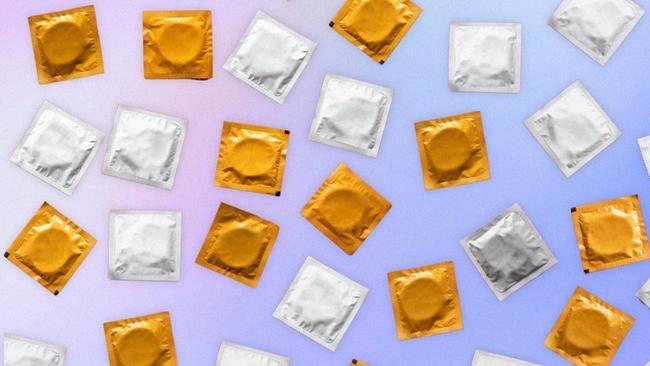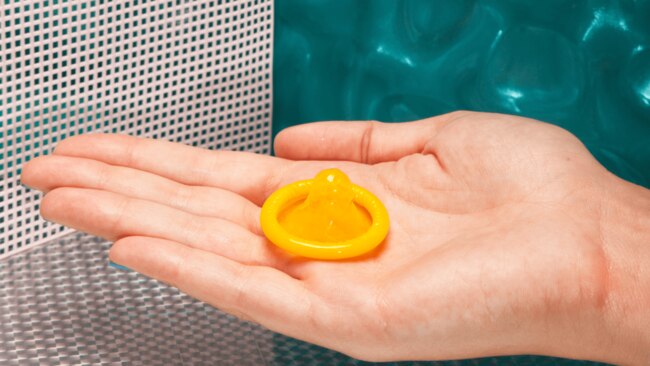STI rates have surged across Australia – here’s how to keep safe
Protection is essential

Lifestyle
Don't miss out on the headlines from Lifestyle. Followed categories will be added to My News.
In this article
The rise of STIs across the country is a major cause for concern
The key to taking care of your sexual health is education
Communicate with your GP regularly and advocate for your health
A new report says cases of syphilis, gonorrhoea, and HIV have increased significantly across the country. An expert shares what we need to do to keep safe.
In alarming news, Australians are being urged to get tested for sexually transmitted infections (STIs) after it was found that cases of syphilis, gonorrhoea, and HIV have increased significantly across the country.
The Royal College of Pathologists (RCPA)has issued a warning after finding that there’s been a concerning rise in the number of STI cases across Australia, urging Australians to get tested.
They found that there’s been almost a 20 per cent increase in gonorrhoea cases from 2022 to 2023 – a number that's expected to increase again in 2024. Syphilis rates have also skyrocketed, especially congenital syphilis, which is transmitted to unborn children.
The report also found that First Nations people had higher rates of STIs, with chlamydia diagnosis being twice as common as non-Indigenous people. Gonorrhoea and syphilis were also found to be five times higher in First Nations communities.

The RCPA said the rise in STIs required “immediate” attention in Australia and encouraged testing.
“The rise in STIs such as gonorrhoea, syphilis, and HIV is a pressing public health issue that requires immediate attention in Australia,” an RCPA spokesperson said in a press release. “Despite a concerning rise in cases, we are not seeing a corresponding increase in testing rates”
“Low testing levels mean that infections can go undiagnosed and untreated, leading to severe health complications and further transmission… Regular testing is crucial to early detection, effective treatment, and preventing the spread of these infections.”
In the last 10 years, cases of syphilis have tripled. If left untreated, it can cause severe complications, especially in pregnant women. Meanwhile, the rise in gonorrhoea cases is a worrying trend as it is a leading cause of antibiotic-resistant infections.

What’s causing the increase in STIs?
There are a few theories flowing about why we’ve seen such an increase in STI cases. The first is that people are testing themselves less. The second is that there’s been a decline in condom use.
The Body+Soul 2024 Sex Census revealed one in 10 Australians have had an STI, and only one in four use contraception every time they have sex.
We asked Dr Sam Saling about the alarming report and the reasons for the increase.
“The theory is that there is less testing going on,” she told Body+Soul. “Furthermore, the Covid-19 pandemic years meant that many proactive health checks like STI testing were not occurring on a regular basis.”
Additionally, RCPA says that the reduced use of condoms across all demographics is also causing wider infection rates.

How can I protect myself in the heat of the moment?
Of course, there are precautions that everyone should employ before, during, and after sex to keep safe.
When you’re having more casual sexual encounters or instances where you’re unsure of your partner’s history, it can sometimes feel a bit awkward or uncomfortable to advocate for your needs.
But Dr Saling recommends open and transparent communication before doing the deed. “My best advice is to advocate for your health. Keep it neutral, normalise the conversation as a healthy part of sexual encounters,” she says. After all, having open and candid conversations about your health should be part of foreplay!
During the act, Dr Saling recommends the use of condoms. “In the moment, we recommend using barrier contraception like condoms in order to have a physical protective measure against STI transmission.”
After sex, you can keep yourself safe by getting tested regularly.
The keyword here is ‘regular’, with it being recommended that anyone who is sexually active be tested and get a sexual health check-up every six to 12 months. Yes, even if you use condoms. And yes, even if you’re in a long-term relationship. If you’re a man who has sex with men, you should up this to every three months.
“After the fact, getting an STI check with your GP is crucial to be screened for relevant conditions and receive adequate and effective treatment to stay safe and well,” Dr Saling says.

What can I do if I’m worried that I’ve been infected?
The first step is, of course, testing. Even if you don’t think you’ve been exposed, regular testing is key to keeping safe (and having a hot sex life in the process).
“I recommend regular STI testing,” Dr Saling says. “There are so many private and public clinics that can help with this. And for those averse to clinician-led examinations, there are many different options for self-testing!”
If you’ve tested positive, you should of course let any sexual partners know of your status.
If you’re afraid of telling people directly, Dr Saling recommends the app Let Them Know, which is “a confidential and anonymous STI notification system for sexual partners to disclose diagnoses discreetly.”
So wrap it up, get tested regularly, and have fun out there.
More Coverage
Originally published as STI rates have surged across Australia – here’s how to keep safe




